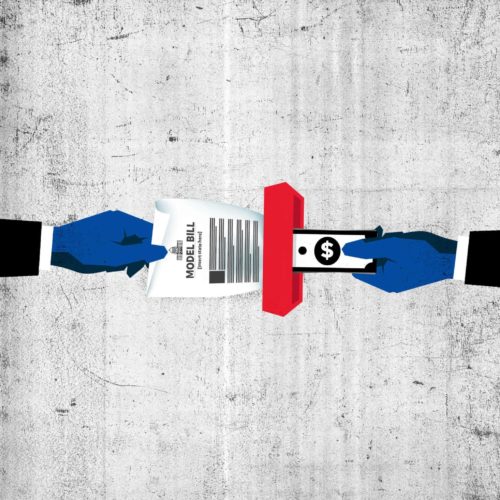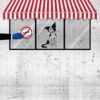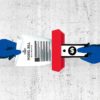Introduction
The Center for Public Integrity’s “Copy, Paste, Legislate” series, which revealed how special interest groups and lobbyists introduce “copycat legislation” across all 50 states, has won the 2020 Goldsmith Prize for Investigative Reporting. Public Integrity shares this honor with partner news organizations USA TODAY and The Arizona Republic.
The annual Goldsmith Prize, administered by Harvard’s Shorenstein Center on Media, Politics and Public Policy, is one of journalism’s highest honors, recognizing investigative reporting that best promotes more effective and ethical conduct of government. The winner receives $25,000, finalists $10,000. This year’s finalists included the Washington Post, NBC News, ProPublica and The Oregonian.
“Our award demonstrates that collaborative, ambitious public service reporting plays a vital role,” said Public Integrity’s CEO, Susan Smith Richardson, adding, “we win this at a time when COVID-19 means our newsrooms cannot gather together in celebration, but be sure our victory gives us heart to continue reporting on COVID-19 and other issues of national importance.”
The award ceremony had been scheduled for March 12 in Cambridge, Mass., but was canceled because of the coronavirus pandemic. The winner and finalists instead were announced via video Monday afternoon.
The “Copy, Paste, Legislate” series exposed how state legislators frequently proposed cookie-cutter bills shopped to them by corporations, special interest groups and lobbyists. These bills enabled the resale of defective cars, weakened smoking restrictions and aimed to enshrine hundreds of other political goals into state law. In all, this “copycat legislation” machine constitutes one of the most notable special-interest influence campaigns in America despite most people — even some lawmakers — being unaware of it. Goldsmith judges said: “This fantastic reporting sheds a light for the public and local media on the origins of legislation that gets passed in statehouses across the country.”
Reporting for this series required tremendous resources, combining the efforts of three news organizations as well as the creation of specialized data tracking tools. Public Integrity and The Arizona Republic built two trackers that use algorithms to detect similarities in language for these copy-and-paste bills. The efforts found more than 10,000 introduced from 2010 to 2018 — but the real numbers are probably higher.
Consequently, Public Integrity made our tracker tool publicly available, training statehouse journalists and members of the public to identify more examples of copycat legislation that continue to pop up during 2020 legislative sessions. Thus far, the regularly updated tool reveals how copycat bills affect nearly every aspect of American life, from who can grow hemp or breed puppies to what can be called “milk” or “meat” for purchase at grocery stores.
The full “Copy, Paste, Legislate” series may be found here and a behind-the-scenes look at the project here.





Join the conversation
Show Comments
Within the opening remarks of this article I asked myself “is there any way for the consumer to know if there is a recall on their vehicle on their own?” Not wanting myself to be in a situation where I could have protected myself from severe harm or death. The answer is yes – all you need to do is go to safercar.gov and type in the VIN number to see what, if any, recalls are on a specific car. Consumers can, quite easily, protect themselves without relying on the dealers ethics. This should have been mentioned in the article.… Read more »